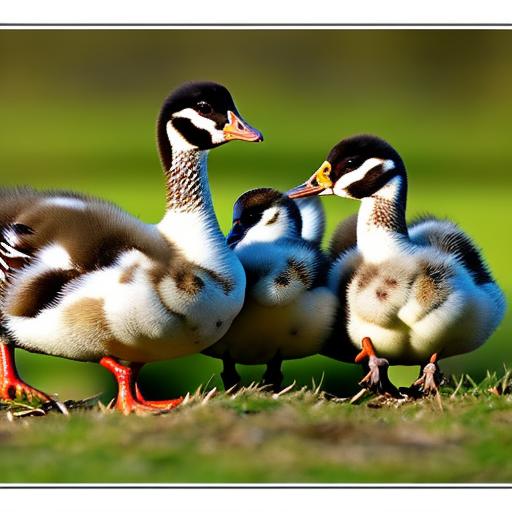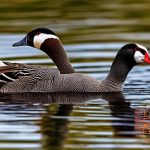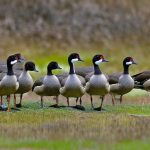Broody goose breeds are known for their strong maternal instincts and their ability to raise and care for chicks. These breeds are often sought after by farmers and homesteaders who are looking to expand their flocks and raise new generations of geese. Understanding the different broody goose breeds is important for anyone looking to raise chicks, as each breed has its own unique characteristics and traits that make them well-suited for this role. By understanding the various broody goose breeds, farmers and homesteaders can make informed decisions about which breed will best meet their needs and goals for raising chicks.
Characteristics of Broody Goose Breeds
Broody goose breeds are known for their nurturing and protective nature, making them ideal for raising chicks. These breeds are often larger and more docile than other goose breeds, making them well-suited for the task of caring for young chicks. Some common characteristics of broody goose breeds include a strong maternal instinct, a gentle and nurturing demeanor, and a protective nature. These breeds are also known for their ability to communicate with and teach their chicks, helping them to learn important skills and behaviors. Understanding the characteristics of broody goose breeds is important for anyone looking to raise chicks, as it can help them choose the breed that will best meet their needs and goals.
Best Broody Goose Breeds for Raising Chicks
There are several broody goose breeds that are well-suited for raising chicks. Some of the best broody goose breeds for raising chicks include the Toulouse, Embden, and African goose breeds. These breeds are known for their strong maternal instincts, gentle demeanor, and protective nature, making them ideal for caring for young chicks. The Toulouse goose breed, for example, is known for its large size and gentle nature, making it well-suited for raising and caring for chicks. The Embden goose breed is also known for its nurturing and protective nature, making it a popular choice for farmers and homesteaders looking to raise chicks. The African goose breed is another popular choice for raising chicks, as it is known for its strong maternal instincts and ability to communicate with and teach its young. By choosing one of these broody goose breeds, farmers and homesteaders can ensure that their chicks will be well-cared for and protected as they grow and develop.
Broody Goose Breeds and Their Mothering Instincts
Broody goose breeds are known for their strong mothering instincts, which make them well-suited for raising and caring for chicks. These breeds are highly protective of their young and will go to great lengths to ensure their safety and well-being. They are also known for their ability to communicate with and teach their chicks, helping them to learn important skills and behaviors. This nurturing and protective nature is what makes broody goose breeds such valuable assets for farmers and homesteaders looking to raise chicks. By understanding the mothering instincts of broody goose breeds, farmers and homesteaders can ensure that their chicks will be well-cared for and protected as they grow and develop.
Factors to Consider When Choosing a Broody Goose Breed
When choosing a broody goose breed for raising chicks, there are several factors to consider. One important factor to consider is the size of the breed, as larger breeds may be better suited for raising and caring for chicks. Another factor to consider is the temperament of the breed, as gentle and nurturing breeds are ideal for raising chicks. It is also important to consider the breed’s ability to communicate with and teach its young, as this can help chicks learn important skills and behaviors. Additionally, farmers and homesteaders should consider the breed’s adaptability to their specific climate and environment, as this can impact the success of raising chicks. By carefully considering these factors, farmers and homesteaders can choose a broody goose breed that will best meet their needs and goals for raising chicks.
Broody Goose Breeds and Their Adaptability to Raising Chicks
Broody goose breeds are highly adaptable to raising chicks, making them well-suited for this important task. These breeds are able to communicate with and teach their chicks, helping them to learn important skills and behaviors. They are also highly protective of their young, ensuring their safety and well-being as they grow and develop. Additionally, broody goose breeds are able to adapt to a variety of climates and environments, making them suitable for farmers and homesteaders in different regions. This adaptability is what makes broody goose breeds such valuable assets for raising chicks, as they are able to thrive and succeed in a variety of conditions.
Broody Goose Breeds and Their Interaction with Chicks
Broody goose breeds are known for their nurturing and protective nature, which is reflected in their interaction with chicks. These breeds are highly communicative with their young, using vocalizations and body language to teach them important skills and behaviors. They are also highly protective of their chicks, ensuring their safety and well-being as they grow and develop. This interaction between broody goose breeds and their chicks is essential for the successful raising of young geese, as it helps chicks learn important skills and behaviors while also ensuring their safety and well-being.
Tips for Raising Chicks with Broody Goose Breeds
Raising chicks with broody goose breeds requires careful planning and consideration. One important tip for raising chicks with broody goose breeds is to provide a safe and secure environment for the chicks to grow and develop. This can include providing a warm and dry nesting area, as well as protection from predators and other potential threats. It is also important to provide the chicks with a balanced diet that meets their nutritional needs, as this can impact their growth and development. Additionally, farmers and homesteaders should closely monitor the interaction between broody goose breeds and their chicks, ensuring that the chicks are being cared for and protected as they grow and develop. By following these tips, farmers and homesteaders can ensure the successful raising of chicks with broody goose breeds.
Challenges of Raising Chicks with Broody Goose Breeds
While raising chicks with broody goose breeds can be a rewarding experience, it also comes with its own set of challenges. One common challenge is ensuring the safety and well-being of the chicks, as broody goose breeds can be highly protective and may become aggressive towards potential threats. Additionally, farmers and homesteaders may need to carefully monitor the interaction between broody goose breeds and their chicks, ensuring that the chicks are being cared for and protected as they grow and develop. Another challenge is providing a suitable environment for the chicks to grow and develop, as this can impact their health and well-being. By understanding and addressing these challenges, farmers and homesteaders can ensure the successful raising of chicks with broody goose breeds.
Finding the Right Broody Goose Breed for Raising Chicks
In conclusion, broody goose breeds are highly valuable assets for farmers and homesteaders looking to raise chicks. These breeds are known for their strong maternal instincts, nurturing and protective nature, and ability to communicate with and teach their young. By understanding the different broody goose breeds and their characteristics, farmers and homesteaders can make informed decisions about which breed will best meet their needs and goals for raising chicks. By carefully considering factors such as size, temperament, adaptability, and interaction with chicks, farmers and homesteaders can choose a broody goose breed that will ensure the successful raising of chicks. With careful planning and consideration, raising chicks with broody goose breeds can be a rewarding and fulfilling experience for farmers and homesteaders.
Meet Walter, the feathered-friend fanatic of Florida! Nestled in the sunshine state, Walter struts through life with his feathered companions, clucking his way to happiness. With a coop that’s fancier than a five-star hotel, he’s the Don Juan of the chicken world. When he’s not teaching his hens to do the cha-cha, you’ll find him in a heated debate with his prized rooster, Sir Clucks-a-Lot. Walter’s poultry passion is no yolk; he’s the sunny-side-up guy you never knew you needed in your flock of friends!







